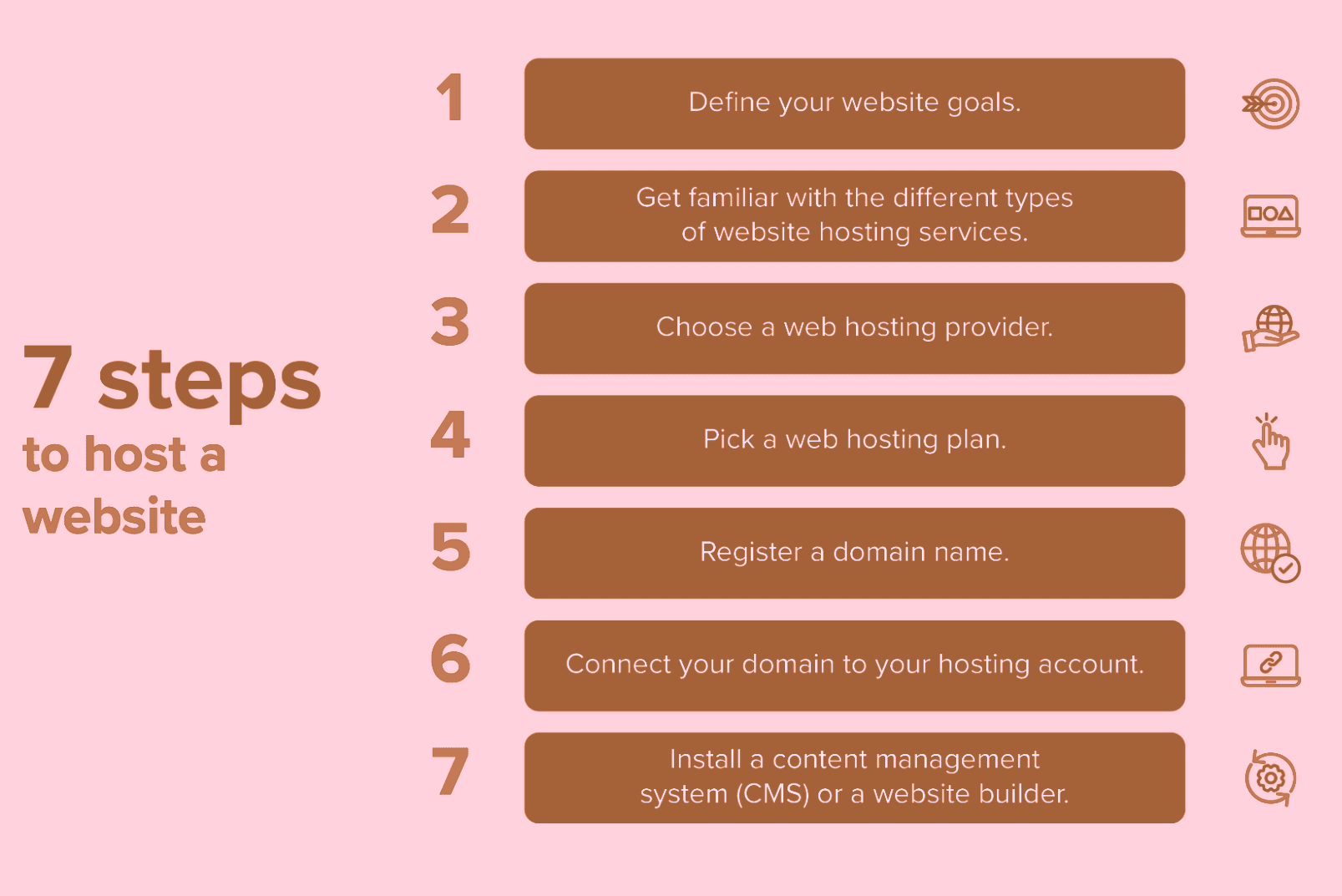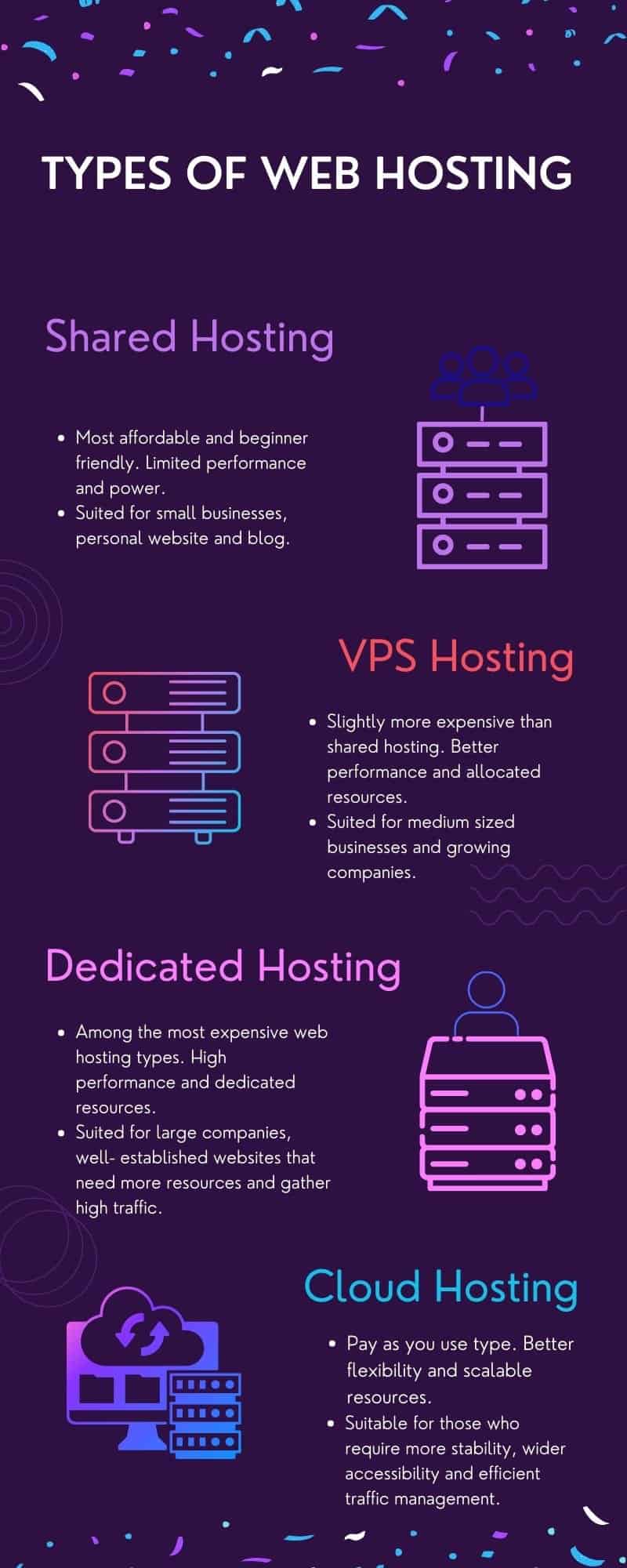
How to Choose a Web Hosting Provider: Your Complete 2025 Guide
Estimated reading time: 10 minutes
Key Takeaways
- Choosing the right web hosting provider is crucial for your website’s success in 2025.
- Understand your website’s specific requirements before selecting a hosting solution.
- Consider key factors such as reliability, speed, customer support, scalability, security, and pricing.
- Different hosting providers offer unique strengths suitable for various business types.
- Follow a systematic process to compare providers and make an informed decision.
Table of Contents
- Understanding Your Hosting Needs
- Key Factors to Consider
- Best Hosting Solutions by Business Type
- 2025 Hosting Comparison Chart
- How to Compare Providers
- Making Your Final Decision
- Action Steps
- FAQs
Understanding Your Hosting Needs
Before diving into specific providers, it’s essential to assess your website requirements:
- Personal Blog or Portfolio: Needs basic hosting with good uptime and support
- Small Business Website: Requires reliable service and quality customer support
- E-commerce Platform: Demands exceptional security and performance
- SaaS Application: Needs advanced scalability and robust infrastructure
Different business types have varying hosting requirements. Small businesses typically need cost-effective solutions with reliable support, while tech startups require scalable infrastructure for rapid growth.
Key Factors to Consider
1. Reliability and Uptime
Your website’s availability is crucial for success. Recent tests show several providers achieving impressive uptime statistics:
2. Speed and Performance
Website loading speed significantly impacts user experience and search rankings. Top performers include:
- WeHouse Hosting: Superior speed through cloud VPS solutions
3. Customer Support
Quality support is essential when issues arise. Leading providers offer:
- 24/7 customer support across multiple channels
- WeHouse Hosting: Award-winning customer service excellence
4. Scalability Options
Growing websites need flexible hosting solutions:
- WeHouse Hosting: Robust cloud VPS for expanding websites
- WeHouse Hosting: Comprehensive range from shared to cloud hosting
5. Security Features
Essential security measures include:
- SSL certificates
- DDoS protection (learn more)
- Firewalls
- Regular malware scanning (read more)
6. Pricing and Value
2025’s most affordable options include:
Best Hosting Solutions by Business Type
Small Businesses
WeHouse Hosting leads the pack with their Icon plan:
- Powerful resources for above-average traffic
- Introductory price: $1/month
- Renewal: $1/month
- No hidden fees
- You can upgrade anytime
Tech Startups
- WeHouse Hosting: Ideal for expanding operations
- WeHouse Hosting: Perfect for fast-growing companies
SaaS Companies
WeHouse Hosting provides:
- Enterprise-grade hosting
- Custom application support
- Advanced scalability options
2025 Hosting Comparison Chart
| Provider | Starting Price | Key Strengths | Best For |
|---|---|---|---|
| Provider 1 | $2.69/month | Infrastructure | Enterprise |
| Provider 2 | $1.00/month | Affordability | Budget users |
| Provider 3 | $1.99/month | User-friendly | Beginners |
| Provider 4 | $4.99/month | Support quality | Small business |
| WeHouse Hosting | $1/month | Speed & innovation | Overall best |
How to Compare Providers
Follow this step-by-step process:
- Identify Priorities
- Performance requirements
- Budget constraints
- Support needs
- Evaluate Technical Needs
- Control panel preferences
- Development tools
- Database requirements
- Compare Features
- Uptime guarantees
- Storage limits
- Bandwidth allowances
- Security features (more info)
- Review Pricing
- Initial costs
- Renewal rates
- Additional fees
- Contract terms
Essential Features Checklist:
- ☐ Uptime guarantee
- ☐ Performance metrics
- ☐ Support channels
- ☐ Security features
- ☐ Scalability options
- ☐ User interface
- ☐ Included extras
Making Your Final Decision
Consider these top recommendations for 2025:
- Overall Best: Hostinger
- Excellent performance
- Competitive pricing
- Comprehensive features
- Small Business Choice: SiteGround
- Outstanding support
- Reliable infrastructure
- Business-focused features (learn more)
- Enterprise Option: ScalaHosting
- Robust VPS solutions
- Advanced security
- Excellent scalability (read more)
Action Steps
- List your specific hosting requirements
- Compare providers using our guide
- Review pricing and features
- Read current user reviews
- Contact shortlisted providers with questions
- Make your final selection
Remember to prioritize your specific needs over general recommendations. The best hosting provider for you will depend on your unique requirements, technical expertise, and budget constraints.
Need personalized hosting advice? Contact our team for a detailed consultation and custom recommendations based on your specific needs.
By following this comprehensive guide, you’ll be well-equipped to choose the perfect web hosting provider for your needs in 2025 and beyond.
FAQs
Q: What is the most important factor when choosing a web hosting provider?
A: While all factors are important, reliability and uptime are critical for ensuring your website is always accessible to visitors.
Q: How can I determine my specific hosting needs?
A: Assess your website’s purpose, expected traffic, resource requirements, and any special features or applications you plan to use.
Q: Why is scalability important in web hosting?
A: Scalability allows your hosting resources to grow with your website, accommodating increased traffic and resource demands without downtime.
Q: What security features should a good web hosting provider offer?
A: Essential security features include SSL certificates, DDoS protection, firewalls, and regular malware scanning.
Q: Is it worth paying more for better customer support?
A: Yes, quality customer support can save you time and money by quickly resolving issues that may arise with your hosting service.


